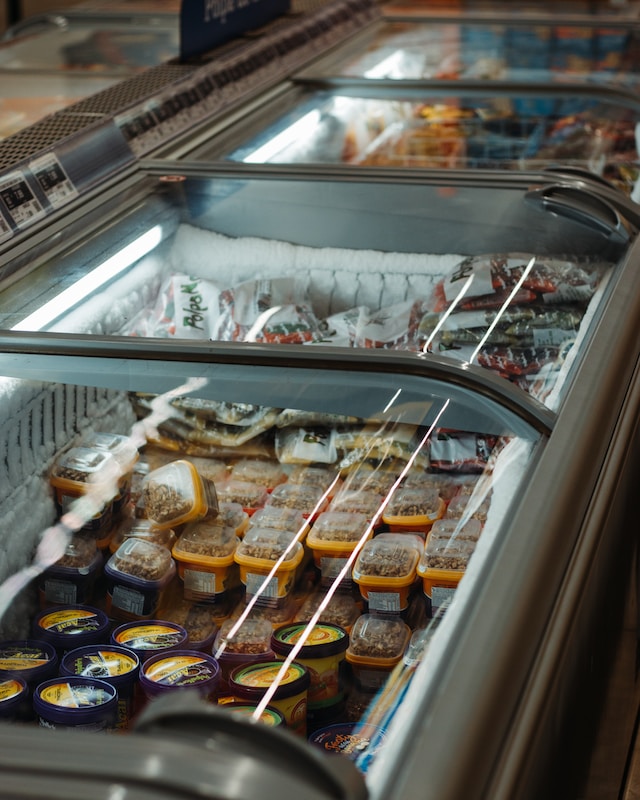The Importance of Commercial Refrigerators in the Food Industry

In the dynamic realm of the food industry, where freshness and quality are paramount, commercial refrigerators emerge as silent champions. These essential appliances play a pivotal role in preserving perishable goods, ensuring food safety, and ultimately, facilitating the efficient functioning of restaurants, grocery stores, and food production facilities. In this article, we will delve into the analytics perspective of the importance of commercial refrigerators in the food industry, focusing on their role in food preservation, compliance with safety regulations, and their impact on businesses’ bottom lines.
Food Preservation and Freshness
Extending the Shelf Life
Commercial refrigerators are not just bulky storage units; they are the unsung heroes of the food industry, capable of extending the shelf life of various food items. By maintaining the right temperature and humidity levels, these refrigeration systems slow down the natural processes of food degradation. For instance, fresh produce, meats, dairy products, and other perishables can remain fresh for longer periods in a controlled refrigerated environment.
Minimizing Food Wastage
One of the most significant advantages of commercial refrigerators is their ability to reduce food wastage. In the United States alone, it is estimated that over 30% of all food products are wasted each year. Commercial refrigerators significantly mitigate this problem by preventing spoilage, which in turn helps businesses save on expenses and reduces their environmental impact.
Quality Assurance
In the food industry, quality is non-negotiable. Commercial refrigerators ensure that food items maintain their taste, texture, and nutritional value. By keeping ingredients and finished products at optimal temperatures, they help businesses uphold their reputation for serving high-quality food.
Compliance with Safety Regulations
Temperature Control and Food Safety
Food safety is a top priority in the food industry, and maintaining the correct temperature is crucial. Commercial refrigerators are designed to meet stringent food safety standards and regulations. They help prevent the growth of harmful bacteria and pathogens by keeping food at safe temperatures. This not only protects consumers but also keeps businesses in compliance with health and safety regulations.
HACCP Compliance
The Hazard Analysis and Critical Control Point (HACCP) system is a globally recognized framework for ensuring food safety. Commercial refrigerators are essential components of HACCP compliance, as they provide the necessary refrigeration and freezing conditions to prevent foodborne illnesses. Maintaining these stringent standards is not only a legal requirement but also a significant factor in maintaining a positive brand image.
Traceability and Record-keeping
Modern commercial refrigerators are equipped with advanced technology, including temperature monitoring systems and data logging capabilities. These features help businesses maintain a record of temperature fluctuations and alarms, ensuring accountability in case of any issues. This traceability is a crucial part of food safety audits and compliance.
Impact on Business Bottom Lines
Cost Savings
Commercial refrigerators contribute to cost savings in several ways. First, by extending the shelf life of food products, they reduce the frequency of restocking, allowing businesses to order in larger quantities and benefit from bulk discounts. Second, by minimizing food wastage, they help businesses save on disposal costs and reduce their overall operating expenses.
Reduced Downtime and Business Continuity
Imagine a scenario in which a restaurant’s refrigeration system fails. The financial losses due to wasted food, lost revenue, and customer dissatisfaction can be substantial. Commercial refrigerators are built with reliability in mind, with many models offering backup systems and alarms to prevent such breakdowns. This ensures business continuity and minimizes downtime.
Optimal Storage and Organization
Efficient storage and organization are vital for businesses in the food industry. Commercial refrigerators are designed to maximize storage capacity while ensuring easy access to items. This not only improves operational efficiency but also contributes to better inventory management, reducing the risk of overstocking or running out of essential ingredients.
Why Choose Commercial Reach-in Refrigerators?
- Convenient Access: The “reach-in” design allows easy access to the contents, making it efficient for chefs and kitchen staff to retrieve ingredients and food items quickly. This design is particularly useful in busy kitchen environments.
- Variety of Sizes: Commercial reach-in refrigerators come in various sizes, from small under-counter units to large walk-in models, making it easier for businesses to choose the size that suits their needs.
- Temperature Control: These refrigerators offer precise temperature control, ensuring that food items are stored at the right temperature for maximum freshness and safety.
- Energy Efficiency: Many commercial reach-in refrigerators are designed with energy efficiency in mind, helping businesses reduce their operational costs.
- Compliance with Regulations: These units are built to meet the rigorous standards and regulations set by health authorities, ensuring food safety and quality.
Tips for buy commercial reach in refrigerator
- Assess Your Needs: Determine the size and capacity requirements based on the volume of food storage your business needs.
- Consider Energy Efficiency: Look for models with high energy efficiency ratings to minimize operational costs.
- Temperature Range: Ensure that the refrigerator can maintain the required temperature range for the specific types of food you will be storing.
- Durability: Invest in a reputable brand or manufacturer to ensure the durability and longevity of your commercial reach-in refrigerator.
- Maintenance and Service: Check for available maintenance and service packages to keep your refrigeration system running smoothly.
In conclusion, commercial refrigerators are an indispensable part of the food industry. Their ability to preserve food, ensure safety compliance, and contribute to cost savings makes them vital assets for restaurants, grocery stores, food production facilities, and other businesses in the food sector.
When it comes to choosing the right refrigeration system for your business, commercial reach-in refrigerators offer an excellent option due to their practical design, convenient access, and compliance with safety regulations. By investing in quality refrigeration equipment, businesses can maintain the freshness and quality of their products, reduce food wastage, and ultimately enhance their bottom lines.



